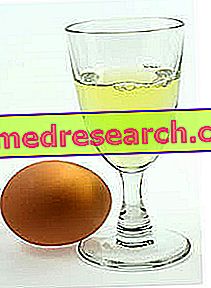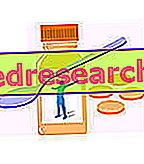What is Avidin
Avidin is a basic tetrameric glycoprotein (68, 000 D), thus consisting of four identical subunits (it belongs to the homotetramer category). Produced in the oviducts of birds, reptiles and amphibians, it is deposited in the white of the eggs, better known as egg white.
The name avidina derives from the particular avidity of this molecule against a vitamin, B7, called biotin or vitamin H.

Avidina and Vitamin B12
Each avidin subunit has a binding site for biotin, to which it binds so tenaciously as to form an unabsorbable complex for the human intestine.
The interaction between avidin and biotin is not covalent, but is extremely strong (the dissociation constant KD is of the order of 10-15 M). Furthermore, the bond is formed very quickly and is practically irreversible.
The fact that each avidin molecule can bind to itself four different biotin molecules - and the particular tenacity of this bond - has made it extremely useful in immunohistochemistry and, in vivo, for targeting solid tumors.
Baking and egg whites
All these antivitaminiche characteristics are lost with cooking, and this is the reason why it is advisable to consume only cooked eggs, avoiding the raw ones. Moreover, we must not forget that raw albumen proteins have a poor digestibility (51%), due to the antitrypsin action of the ovomucoid; finally, the risk of contracting salmonellosis and other food diseases, especially when the eggs are not fresh, must be considered.
Avidin represents 0.05% of the total protein fraction of chicken egg white; each of them, therefore, provides approximately 190 mg of avidin. With regard to biological function, it is hypothesized that birds, reptiles and amphibians synthesize avidin in their own oviducts to inhibit bacterial growth, depriving these micro-organisms of the biotin necessary for their development.



